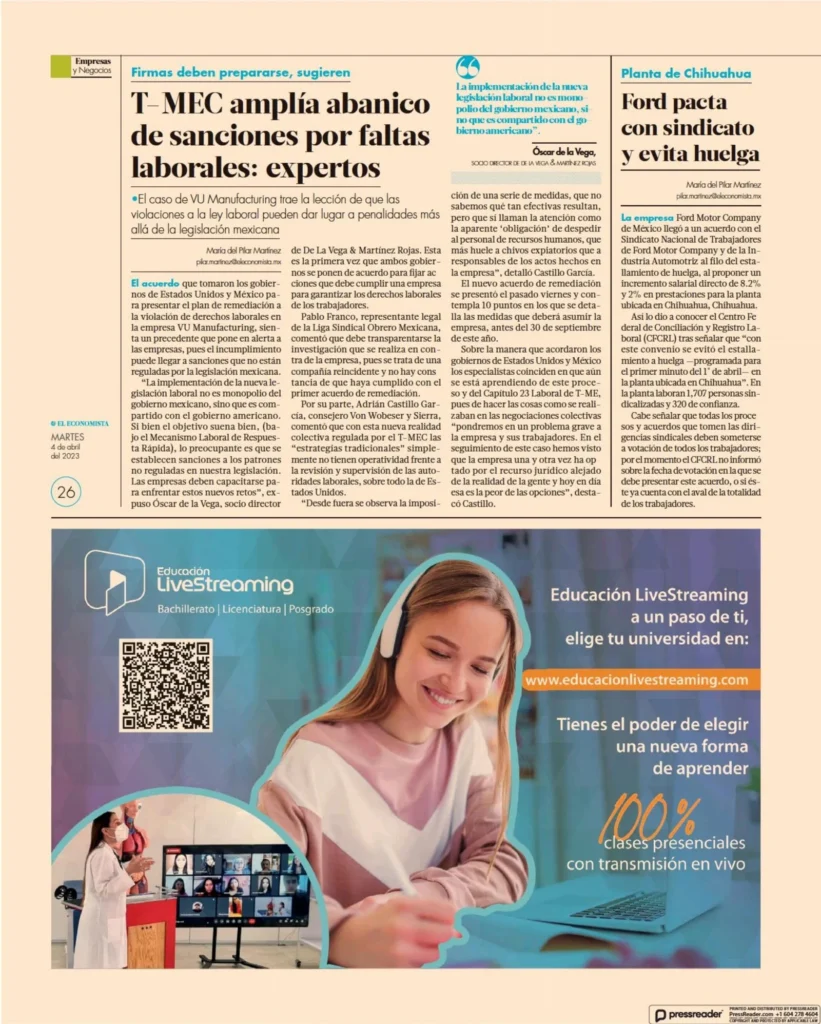The agreement reached between the governments of the United States and Mexico to present the remediation plan for the violation of labor rights at the VU Manufacturing company sets a precedent that puts companies on alert, as non-compliance can result in penalties that are not regulated in the Mexican legislation.
The implementation of the new labor legislation is not a monopoly of the Mexican government but is shared with the American government.”
Even though the objective sounds good, (under the Rapid Response Labor Mechanism), what is worrying is that penalties that are not regulated by our legislation are established for employers. “Companies must prepare in order to be able to face these new challenges”, explained Óscar de la Vega, managing partner of De La Vega & Martínez Rojas. This is the first time that both governments reach an agreement to define actions that a company must comply with to guarantee the workers’ labor rights.
Pablo Franco, legal representative of the Mexican Workers Union League, said that the investigation that is being conducted against the company should be transparent, as it is a recidivist company and there is no proof that it has complied with the first remediation agreement.
For his part, Adrián Castillo García, a counselor at Von Wobeser y Sierra, said that with this new collective reality regulated by the USMCA, “traditional strategies” simply do not work in face of review and supervision by the labor authorities, particularly those of the United States
“From the outside we see the imposition of a series of measures; we don’t know how effective they are but they do draw attention to themselves, such as the apparent ‘obligation’ of firing human resources personnel, which sounds more like finding scapegoats than those responsible of the acts that took place in the company”, explained Castillo García.
The new remediation agreement was presented last Friday and in covers 10 items that present the measures that will be taken by the company before September 30 of this year.
Regarding the process agreed upon by the United States and Mexico governments, specialists agree that learning from this process and from Labor Chapter 23 of the USMCA is still in progress because if things are done the way they were done in collective bargaining negotiations “we would put the company and the workers in a serious problem. While following this case, we have seen the company repeatedly opting for the legal recourse that is far removed from the reality of the people and these days, that is the worst option”, Castillo pointed out.




